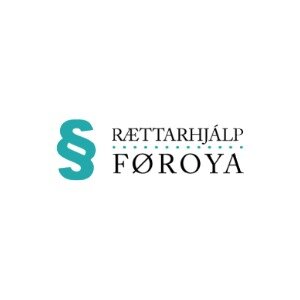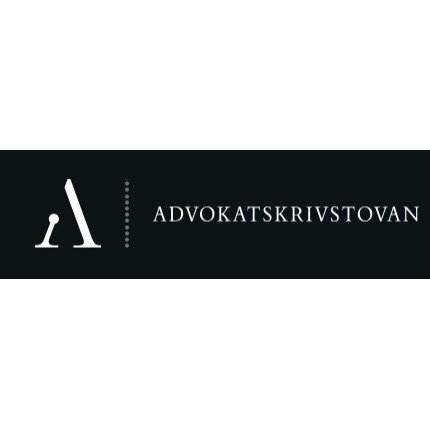Best Debt & Collection Lawyers in Faroe Islands
Share your needs with us, get contacted by law firms.
Free. Takes 2 min.
Or refine your search by selecting a city:
List of the best lawyers in Faroe Islands
About Debt & Collection Law in Faroe Islands
Debt and collection laws in the Faroe Islands govern the relationship between creditors and debtors, ensuring that the process of debt collection is conducted fairly and ethically. The legal framework is designed to protect the rights of both parties, providing mechanisms for creditors to recover debts while safeguarding debtors from abusive practices. As a semi-autonomous region under Denmark, the Faroe Islands may incorporate certain Danish legal principles, but they also have specific regulations tailored to their unique economic context.
Why You May Need a Lawyer
There are several situations where individuals or businesses may require legal assistance in the field of debt and collection. These include facing persistent harassment from collection agencies, disputing the legitimacy of a debt, needing to understand the legal obligations and rights as a debtor or creditor, and requiring assistance in negotiating debt settlement or repayment terms. Legal expertise is also vital when considering bankruptcy or other legal remedies, as well as in situations where a creditor must pursue enforcement actions to recover debts.
Local Laws Overview
The Faroe Islands have specific laws that regulate the conduct of debt collection agencies and the processes of debt enforcement. Key aspects include the requirement for all debt collection agencies to be licensed and adhere to ethical guidelines that prevent harassment or intimidation. Debt recovery typically involves formal processes, and creditors must provide clear evidence of the debt before proceeding with collection. The legal system also offers avenues for debtors to dispute debts and for creditors to seek judgments to enforce collection. Bankruptcy laws provide relief for individuals and businesses unable to meet their debt obligations, offering them a structured way to resolve their financial difficulties.
Frequently Asked Questions
1. What should I do if a collection agency is harassing me?
Document all interactions with the agency and report any harassment to the appropriate authorities. Consider consulting a lawyer to understand your rights and seek protection.
2. How can I verify the legitimacy of a debt claim?
Request a written validation notice from the creditor or collection agency and examine it carefully. If necessary, a lawyer can assist in validating the claim.
3. What is the process for disputing a debt?
Initiate the dispute by sending a written notice to the creditor detailing your reasons for disputing the debt. Follow up with legal advice if the matter is complex.
4. Can creditors seize my assets for unpaid debts?
Asset seizure can occur, but typically only after a court judgment. The process must comply with local laws, which include protections for certain essential assets.
5. What are my options if I cannot pay my debts?
Consider negotiating a repayment plan with creditors, exploring debt consolidation, or discussing bankruptcy as a last resort with a legal professional.
6. How is bankruptcy handled in the Faroe Islands?
Bankruptcy provides a legal means to reorganize or discharge debts. The process is supervised by the courts, and you should seek legal guidance to navigate it.
7. Are there any limitations on interest rates and fees that can be charged by creditors?
Yes, there are regulations in place to ensure interest rates and fees are fair. Excessive or unjustifiable rates can be legally challenged.
8. How long can a creditor pursue collection of a debt?
There are statutes of limitations that dictate how long creditors have to pursue debt collection, which vary depending on the type of debt.
9. Can I negotiate directly with creditors without legal help?
Yes, direct negotiation is possible, but legal advice may enhance your ability to reach a favorable settlement, especially in complex situations.
10. What documentation should I retain related to my debts?
Keep all contract documents, correspondence with creditors, payment records, and any legal notices to defend your case effectively if needed.
Additional Resources
Those seeking assistance can contact Faroese financial advisory services, the local office of consumer protection, or consult with licensed legal practitioners specializing in debt and collection law. Additionally, the Danish Consumer Ombudsman provides resources that, while Denmark-focused, can offer insights into legal practices shared with the Faroe Islands.
Next Steps
If you need legal assistance in debt and collection matters, the next steps involve gathering all relevant documentation related to your debts and contacting a local lawyer who specializes in this field. Seek recommendations from trusted sources or professional associations in the Faroe Islands to locate a qualified attorney. Ensure that you communicate clearly about your situation and goals, enabling the lawyer to provide tailored advice and representation. Investing in legal advice early can prevent misunderstandings and protect your rights throughout the debt collection process.
Lawzana helps you find the best lawyers and law firms in Faroe Islands through a curated and pre-screened list of qualified legal professionals. Our platform offers rankings and detailed profiles of attorneys and law firms, allowing you to compare based on practice areas, including Debt & Collection, experience, and client feedback.
Each profile includes a description of the firm's areas of practice, client reviews, team members and partners, year of establishment, spoken languages, office locations, contact information, social media presence, and any published articles or resources. Most firms on our platform speak English and are experienced in both local and international legal matters.
Get a quote from top-rated law firms in Faroe Islands — quickly, securely, and without unnecessary hassle.
Disclaimer:
The information provided on this page is for general informational purposes only and does not constitute legal advice. While we strive to ensure the accuracy and relevance of the content, legal information may change over time, and interpretations of the law can vary. You should always consult with a qualified legal professional for advice specific to your situation.
We disclaim all liability for actions taken or not taken based on the content of this page. If you believe any information is incorrect or outdated, please contact us, and we will review and update it where appropriate.
Browse debt & collection law firms by city in Faroe Islands
Refine your search by selecting a city.









